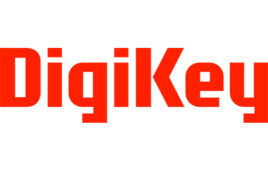Leland Teschler
Executive Editor
[email protected]
On Twitter @DW_LeeTeschler
Recent events have gotten a lot of people concerned about personal attacks, name calling, and reputational smears. No, we’re not talking about the presidential election. Sadly, it is becoming almost as easy to find examples of bullying and defamation in scientific and engineering research as in politics. This uncivil behavior ultimately cheapens scientific ideas.
 So points out Dr. Tee Guidotti, president of the scientific research society Sigma Xi and a physician/consultant in occupational and environmental medicine. “Scientists are human beings and frequently aren’t nice to each other,” he says. “Rather than dealing with disagreements by examining data, scientists are almost as likely as the general public to question the motives of their antagonists.”
So points out Dr. Tee Guidotti, president of the scientific research society Sigma Xi and a physician/consultant in occupational and environmental medicine. “Scientists are human beings and frequently aren’t nice to each other,” he says. “Rather than dealing with disagreements by examining data, scientists are almost as likely as the general public to question the motives of their antagonists.”
It isn’t just that bad-mouthing bums people out. It can thwart or delay progress in scientific and engineering endeavors. Perhaps the classic illustration of the trend involves the bile spewed on both sides of the climate change debate, though this might be a worst-case example. “To be clear, I live in a ‘bad neighborhood,’ working on occupational and environmental health, where such tactics are more common than elsewhere in science/STEM,” says Guidotti.
On a more granular level, consider this situation from my own past: I once had a drinking buddy who discovered a mistake while making a final review of an engineering specification he’d help prepare. Correcting it saved his client about $30,000. Instead of hearing something like, “nice catch” when he brought the situation to light, his client questioned his intelligence for making the initial mistake. “If I ever find another glitch like that, I’ll just shut up and let them pay the money,” he fumed.
Those of us with technical backgrounds would like to think we’re above the kind of name calling my friend received. But it is surprising how often ordinary interactions degenerate into nasty behavior.
“Particularly in hot-button issues like climate change, there can be a straight-to-the-jugular kind of one-upmanship or an effort to assert alpha dominance,” says Guidotti. “And a lot of research is characterized by fine differences in how to interpret hard data. The situation can escalate because you have reached the limits of what data can tell you, and you are trying to interpret meaning. The meaning is the sticking point. What is meaningful to one person who states an opinion may violate the values or appear to contradict those of their critics. We end up using interpretations of data as surrogates for arguments that really have more to do with now we feel than with what the data says.”
You might wonder how to make interactions more civil. Civility among politicians could be a lost cause, but Guidotti thinks science and engineering students need schooling in this area. “The only way to deal with incivility is to call it out. When students see role models fighting at meetings or deprecating one another or being just plain rude, they model that behavior,” he says. “It ends up debasing the scientific enterprise because all-important discussions about weighing arguments become biased and aren’t conducted fairly. And that is harmful to good science and engineering because both are, at their core, social processes.”
Filed Under: Commentaries • insights • Technical thinking





Good write, you get it, we are human too. Deadlines, pressure from the top, and middle management can add stress to the process of development. Then we have the people we work with everyday under some of the same pressures. It’s tough to separate the work from the worker sometimes. But adding bad feelings on top of it all can bring things to a halt, or an undesired conclusion.
So keep on smiling and be cordial with those who you probably spend more time with than your own family.
During my career I have observed some of that behavior, although more in some organizations than in others. a lot of it seems to be driven by the amount of hierarchy in the organizations, the more layers the worse things are. Flatter companies tend to be less nasty most of the time. My personal approach, when finding errors, has been to mention to the individual that I don’t understand how they got the results that they did. Not only is it non-confrontational to most folks, it also allows for the failure to be on my part. At my most recent position, using that approach, it saved my employer about a man-year of development cost by steering them away from an incorrect development path. I am certain that my immediate supervisor did pas that on to our management, based on the size of my next raise, although no mention was ever made of that discussion. Another discovery at that same research group, provided a graceful out for another researcher whose test results were showing sound waves travelling through solids at the speed of light. Unfortunately he had published that same data for many to see. Unfortunately, his results were due to an incorrect connection in his setup. I quietly reported this to that researcher, giving him a chance to recover some credibility.
But I have also worked with those who loudly proclaim their vast technical suppiriority, only to have their whole creations require vast reworking. Detailed records of the needed revisions tell a story better than any spoken words.
Now for the debate about global warming, I always question about how the sun may not be a perfectly constant source of energy, and then I ask about how accurately the solar output could have been measured a hundred or two hundred years ago. All agree that accuracy was not as good back then, and so the seed of doubt about the cause is planted.
But, relative to that, many of those screaming loudest now are the same ones who, back on the 50’s and early sixties, were complaining about how terrible it was that we in the US were living so very well, and consuming so many resources, while much of the world was not so comfortable. Nobody listened to them then, but now tglobal warming is a much easier sell.
The only “scientific ” profession that I am seriously critical of is astronomy. People making fantastic claims about what went on thousands of years ago in locations hundreds or more light-years away. The attacks that I get from those defending such a profession are quite interesting, but none have been able to state any usable benefit to society from the data gathered.